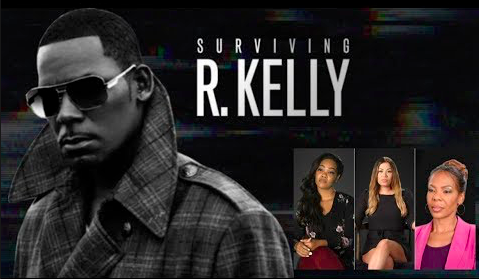R. Kelly documentary series sheds light on #MeToo movement

February 8, 2019
Kelly is a famous singer and songwriter who has made his way to the top of the music industry by redefining the R&B genre of music. Not a single dent has been made in his career, despite the numerous allegations of sexual assault, predatory behavior, and pedophilia that have followed R. Kelly for throughout most of his life. Only now, over two decades later, is the story of his victims being acknowledged over his success, talent and fame.
The six part documentary series, “I survived R. Kelly” displays the trauma his victims experienced, revealing to the world exactly how R. Kelly became the successful celebrity he is today. The series tells the story the sexual assault that African American women experienced as young girls because of R. Kelly. In spite of this documentary shedding light on R. Kelly’s sexually abusive past, he still seems unaffected by these accusations, which is an unsurprising reaction from him considering the number of times he’s been accused of sexual assault. On the other hand, these women of color are not only having to remember the excruciating details of their trauma, but also retell it to the world, and then and only then are they believed by American society.
Although the #MeToo movement was started by a black woman, Tarana Burke, it primarily draws attention to white women in the U.S. who have experienced sexual assault. Women of color have been indirectly excluded from this movement, because of the unfortunate truth that women of color are rarely taken seriously when they bring up the sexual assault that they’ve experienced. The era of #MeToo has allowed women to come forward about sexual assault, and while all women are generally disbelieved, women of color experience a particular disbelief in sexual violence, and the only reason the “I Survived R Kelly” documentary series is different, is because of the explicit details it showcases to its audience.
The U.S. generally insinuates a culture that doesn’t believe that sexual violence against women is a serious issue. However, the refusal to acknowledge this problem is amplified with women of color. This is specifically shown with the instance of R. Kelly. Kelly’s systematic abuse of women for the initial 20 years was either disbelieved or excused and washed over by his talents and fame. For two decades there was a refusal in American society to recognize that these young black girls were being sexually abused and raped, and only when they shared the grueling details of their assault, were they taken seriously.
Just recently has R. Kelly’s pedophiliac and sexually abusive actions become mainstream conversation because of the appalling testimony that is being offered by black women, either the survivors or their mothers. This series forces these women not only to remember, but also to announce to everyone every single detail of their assault. Only after having described the horrific trauma they went through, are these women believed. This begs the question, how much do women of color have to reveal to the world in order for society to believe them?





